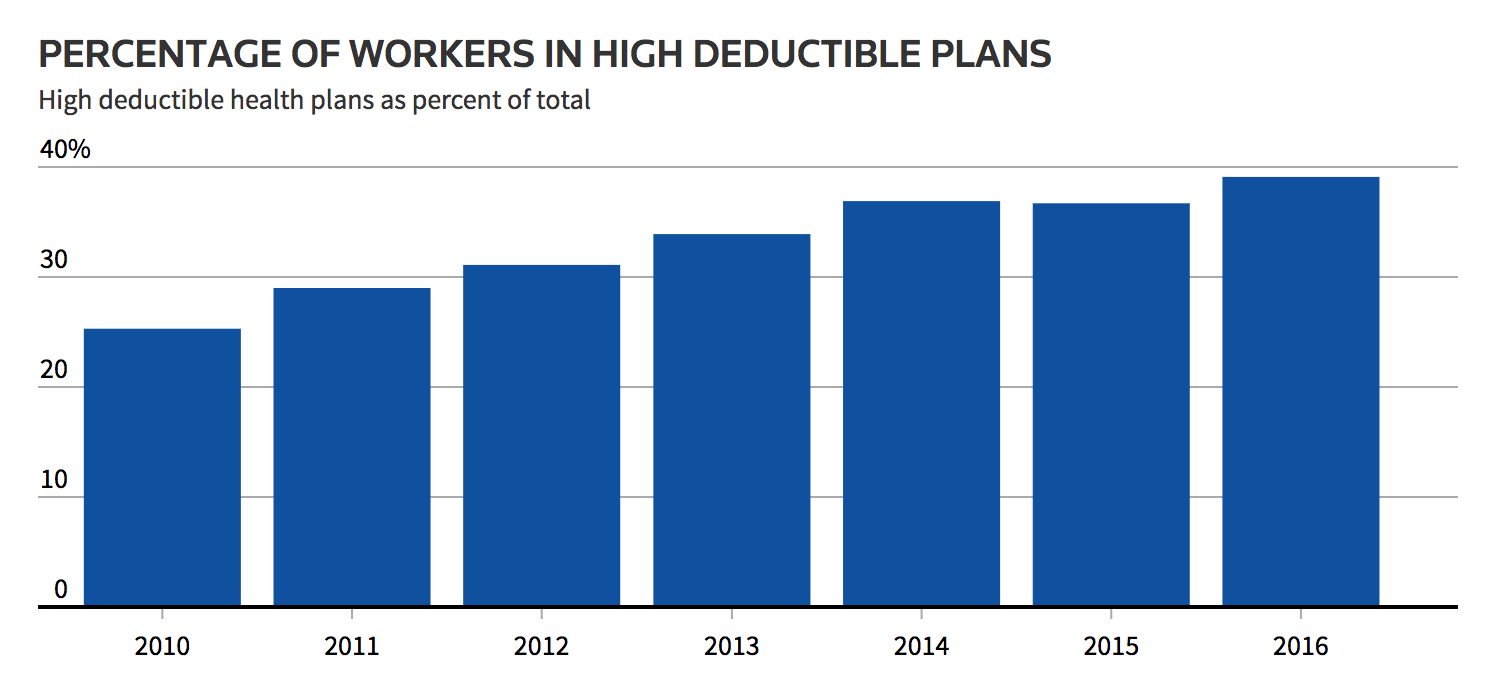Culture April 13, 2017
Forty-five percent of Americans admit they would have trouble paying an unexpected $500 medical bill.


Growing hospital debts are so bad that they’ve begun asking patients to pay up front for care.
Henry County Health Center in Iowa is one such example. They provide patients with a cost estimate along with pre-surgery medical advice.
The new trend stems from a perhaps unexpected side effect of the Affordable Care Act. See, it’s great that millions more Americans have healthcare through the act, but… can any of them actually afford to use it?
In order to keep monthly premiums low enough to be affordable, deductibles have skyrocketed. So if anyone actually needs to use said insurance for care, they’re forced to do it mainly out of pocket. AKA it’s not actually doing anything for them. I know, it’s confusing.

Thanks to high insurance deductibles, upfront hospital costs could deter care. Image via Reuters Graphics
And it’s making a whole lot of trouble for U.S. hospitals. In 2015, they reported nearly $36 billion in uncompensated care costs, most of which is unpaid patient bills, according to the industry’s largest trade group. And while it’s understandable that a business wants to look out for its bottom line – is that okay when said business is medical care?
Like, sure, that model makes sense if we’re talking about, say Apple watches. You can’t afford the $369 cost? Okay. You don’t get an Apple Watch. Fair enough.
But it’s a completely different story when you’re talking about life-saving medical care. Let’s look at a “cost-affective” ACA plan. Paying just over $200 per month (which is not exactly cheap, depending on your cost of living) you could have a $1,900 deductible, with an out-of-pocket limit of $5,450.
So if you need an emergency appendectomy, which run north of $10,000, that means you’re paying that full $5,450. Your response when you get that kind of diagnosis shouldn’t have to be – Well, maybe I’ll just die.
But this is a daily fear for at least 45 percent of Americans, who admitted they would have trouble with an unexpected $500 medical bill – per a poll by the Kaiser Family Foundation. Five hundred dollars. In the medical game, that’s nothing.
And with today’s sky-high costs, patients are ignoring advice on prescription drugs and delaying treatment, or just skipping it all together. I mean, I’ve definitely put off picking up prescriptions to avoid the toll it would take on my bank account. The toll that takes on my body is just going to have to be an issue for future me to figure out.
Unfortunately for now, there isn’t really a solution to this problem. Hospital payments with zero interest and longer repayment times could be of help for non-emergency services. But the unpredictability of life will likely continue to be the hole in that plan.
For those who are less than solvent, the only clear-cut solution seems to be… uh, don’t get sick? So, good luck with that!